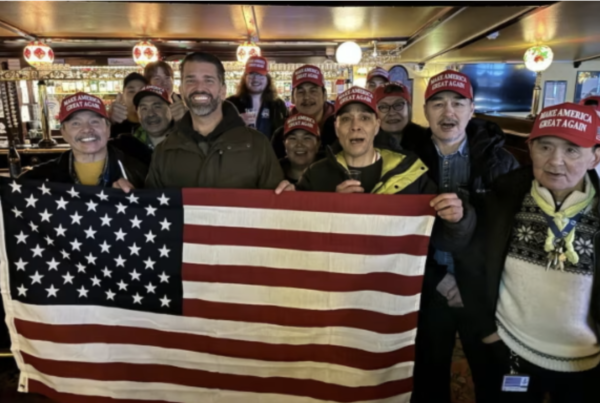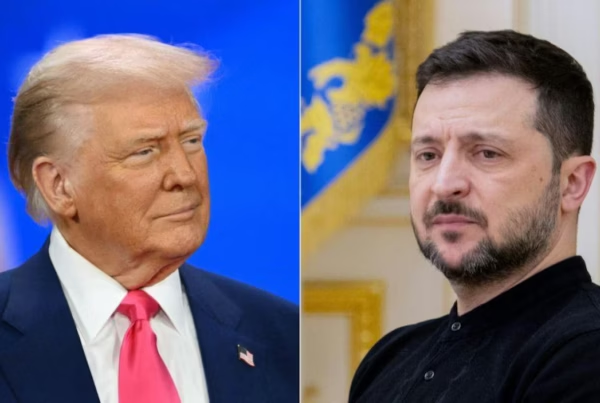By Mark Narusov
As trivial and overused as the phrase is, “more important than ever” may well be a justified way to describe conversations on the topic of the transatlantic alliance, for all the obvious reasons a Sciences Po student need not be reminded of. Yesterday the Distinguished Lectures Series association on Sciences Po’s Reims campus organized a timely and illuminating talk on the topic of transatlantic cooperation in the realm of defense. The speaker was a highly erudite and articulate figure with decades of extensive experience in the field, Leo Michel, currently a Nonresident Senior Fellow at the Atlantic Council. From 1986 to 2002 he served at the Office of the Secretary of Defense, with roles varying from the Director for NATO Policy to the Director for Non-Nuclear Arms Control. After 2002, Michel switched to doing open-source research at the Institute for National Strategic Studies of the Defense.

Leo Michel. Source: https://www.atlcom.nl/english/latest-news/13126/
Contrary to what you would expect, the event gathered only a modest audience of a dozen, owing to maybe the unprecedented snowfall or perhaps the depression-inducing Sciences Po curriculum. However displeasing it may have been to the speaker, it provided for a more informal and intimate atmosphere — to the extent that the topic of the discussion allowed it.
Speaking as a private citizen, no longer constrained in public pronouncements by employment in the American government, Michel did not mince his words, particularly on the impact of the current American administration on transatlantic relations, and combined an in-depth overview of the hard facts of the matter with an independent analysis of the general trends in transatlantic relations.
The speaker started off with a discussion of two landmark documents produced by the U.S. government in recent months, the President’s National Security Strategy and the Department of Defense’s National Defense Strategy. The NSS, mandated by Congress to express general guidance to the entirety of the US government on the interests of the country and the government’s perception of threats and challenges emanating from the world stage, in its most recent formulation illustrated the tensions between the key decision-makers in Washington by combining the Trumpist America First framework with that of the national security establishment of the Republican party. Reflecting the priorities of the former camp, the document calls for tighter border controls, expanded cyber and ballistic defense systems, and the reaffirmation of American sovereignty in the context of the country’s involvement in multilateral institutions. The latter camp is represented by the talk of continuing cooperation with allies and partners and the “indispensable” role of diplomacy.

Photo: Adela Kanlic // Distinguished Lecture Series
The National Defense Strategy prepared by the Pentagon, described by Michel as “much more reasonable”, is illustrative of the shift in the strategic paradigm of the Pentagon from counterinsurgency to containment of the revanchist ambitions of Russia and China, emphasized by the current Secretary of Defense James Mattis himself in his remarks on the document. On the subject of transatlantic cooperation, the document “says all of the right things”, in Michel’s estimation, by stressing the importance of working with America’s allies and partners and assessing it as “crucial” to U.S. strategy. The stark difference in tone between the two documents on the topic of transatlantic cooperation is indicative of the conflicting attitudes of Mattis and Trump. To drive the point home, Michel reminded the audience that, whereas the Secretary of Defense has been firmly reaffirming NATO’s Article 5 in his public pronouncements since his assuming the position, it took the current POTUS six whole months since inauguration to pay it a lukewarm tribute. The importance of the transatlantic alliance was the central theme of Michel’s talk, and the very fact that he judged that this idea — perhaps even too obvious to argue about a couple of years ago — required a defense at this point in time is, to an extent, revealing of Michel’s assessment of the destructive potential of the Trump administration.
The speaker proceeded to give an overview of where transatlantic defense cooperation stands now. As he explained, even though NATO constitutes the “principal vehicle for cooperation” with Europe, bilateral relationships are also vital to American commitment to the alliance’s strength, as both arms sales and troop stationing function on a bilateral basis. Michel especially emphasized U.S. bilateral cooperation with the United Kingdom and France, judging the relationship with the latter to be “maybe even more important” than the former since France’s return to NATO’s integrated command in 2009. Illustrating this, he pointed out that in almost every operation in Africa and the Middle East France is either closely coordinating with or being assisted by the US military, something one could not imagine even a decade ago. Upon coming into office, Mattis reaffirmed the Statement of Intent, a declaration on increasing bilateral defense cooperation made by the former Secretary of Defense Ashton Carter and his French counterpart Jean-Yves Le Drian.
To stress the importance the previous administration gave to U.S.-EU defense cooperation, Michel brought the audience’s attention to three different agreements between the two parties that advanced American policy in this direction, which gave American officials a direct role in EU crisis management, facilitated information exchange, and advanced the cooperation on logistics and supplies between the two entities.
Giving an overview of the persistent issues of contention between the US and its European allies, Michel mentioned the much discussed question of European compliance with the 2014 intra-NATO agreement to spend at least 2 percent of their GDP’s on defense. The speaker cast doubt on the legitimacy of Trump’s taking credit for recent increases in European states’ defense spending, claiming that the changes to the budgets themselves are modest and are part of a trend set in motion before Trump’s assuming the American presidency. Another area of disagreement between transatlantic allies is the 2015 multilateral agreement commonly known as the Iran nuclear deal, which temporarily restricted parts of the Iranian nuclear program in exchange for sanction relief. European parties to the agreement — the UK, Germany, France, and the EU itself — remain staunchly opposed to the Trump administration’s efforts to reopen negotiations on the deal to correct its flaws.
Concluding the talk, Michel offered his observations on the good and the bad news about the transatlantic alliance. According to him, we should remain optimistic about the general trends in the U.S.-European relationship — the foreign and defense policy establishments in both countries by and large agree on the importance of the commitment to the alliance. Moreover, Europe, in Mr. Michel’s point of view, is “not broken” and is “regaining its confidence” despite being under stress due to the refugee crisis and the rise of populism. At the same time, the guest reminded the audience of the fact that “bad actors have a vote” in the developments and can escalate confrontations even without the West’s input, leading to disastrous consequences. The possible effects of such scenarios, however improbable they are, are ever more serious with Trump, easily provoked and unpredictable, being the president of the United States.
Generous with his time, Michel stayed for another half hour to answer questions from the audience. Responding to my remark about Trump’s bad managerial skills being the best explanation for the divergence between his words and deeds, the guest agreed that it is certainly one of the variables that explain the president’s behavior in office, partly owing to his almost unprecedented lack of prior government experience. Answering a question about the future of Ukraine-NATO relations, he expressed skepticism about Ukraine’s admission to the alliance, at least in the short term, owing mainly to the Russian occupation of a portion of the country. Finally, when asked about the impact Barack Obama’s walking back on his red line on the use of chemical weapons by the Assad regime in 2013 had on transatlantic relations, Michel argued that while the decision did have a negative impact on U.S.-French relations, it was a “tough call” to make on the part of the American administration, and was partially justified by the possibility of further entanglement in the Syrian Civil War in the event of even a limited strike.

Photo: Adela Kanlic // Distinguished Lecture Series
The event turned out illuminating and intellectually stimulating. One can only hope that Michel would not be deterred by the probable size of the audience in case an association invites him to speak on the campus of Reims next year.
Other posts that may interest you:
- The Trouble with ‘Ecocide’
- Carbon dioxide removal – hit or miss?
- Local Victories for Turkish Opposition — A Sign of Hope?
- Are France and Japan a Mismatch Made in Heaven?
- A Reflection on Dark Tourism
Discover more from The Sundial Press
Subscribe to get the latest posts sent to your email.





